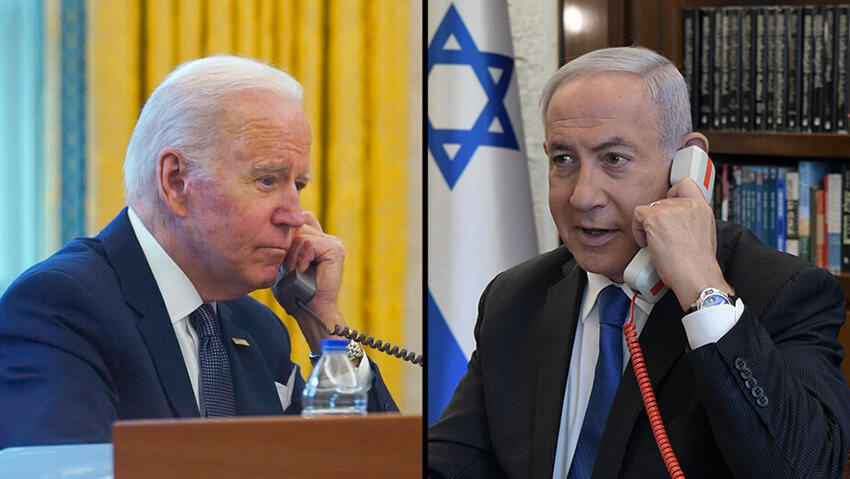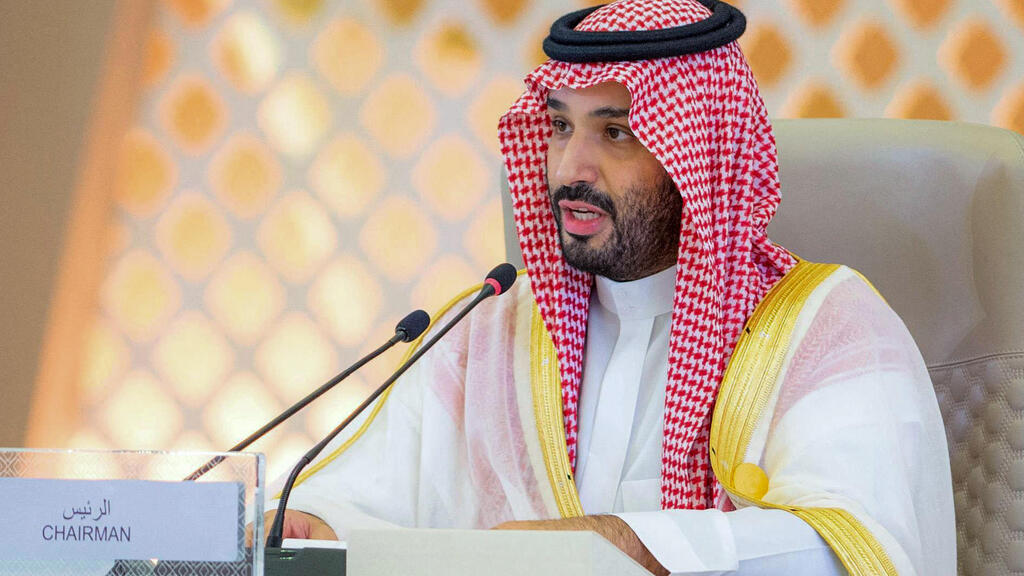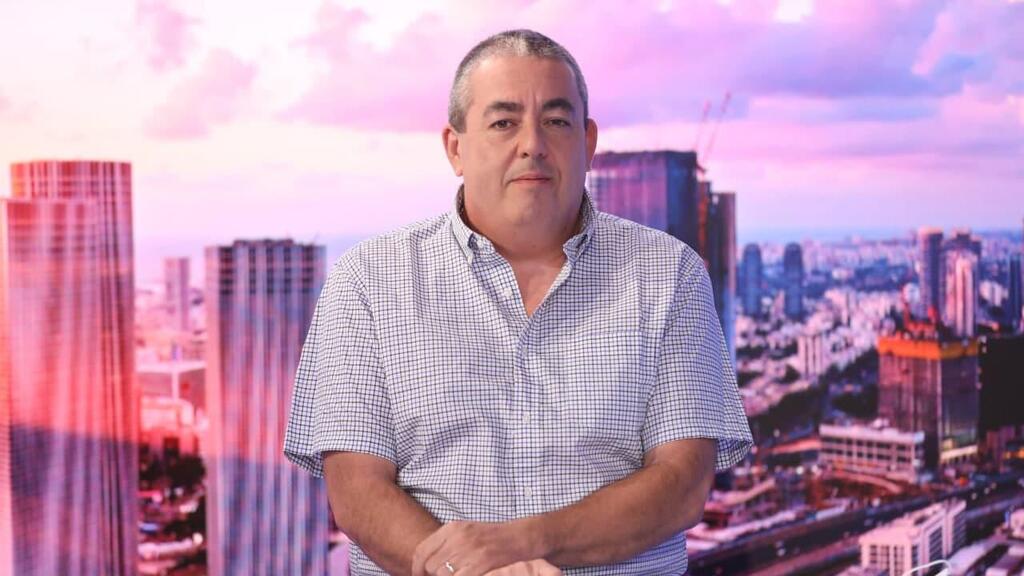Getting your Trinity Audio player ready...
In recent days, the White House has given off the impression that it has started a race for the Holy Grail, which is a normalization agreement between Israel and Saudi Arabia – the jewel in the crown of American foreign policy, a game changer in the Middle East and a dramatic achievement in Joe Biden's foreign policy ahead of the 2024 presidential elections.
More stories:
Little by little, the stars are starting to align for the White House: Biden announced Tuesday his intention to appoint Jack Lew, former treasury secretary and chief of staff in the Obama White House, an Orthodox Jew who observes mitzvot and the Sabbath and speaks Hebrew, as the next US ambassador to Israel. Lew is the most senior American official ever appointed to the position.
3 View gallery


Biden's new appointment of an ambassador to Israel is meant to teach Netanyahu a lesson
(Photo: Kobi Gideon, GPO; AP Photo/Susan Walsh)
"This indicates that Biden wants an authoritative figure here, who can reprimand Netanyahu. He came to teach Bibi a lesson," said Danny Ayalon, Israel's former ambassador to the US. Outgoing ambassador Tom Nides welcomed Lew's appointment and said that "he is a great supporter, which is important to Israel. He cares a lot about Israel."
A few days earlier, the Americans conducted a quick and successful operation to thwart Netanyahu's attempt to oust Danny Dayan as chairman of Yad Vashem. Deborah Lipstadt, the government's envoy to combat antisemitism and one of the greatest Holocaust researchers in the world, and Ellen Germain, a special envoy of the US State Department on Holocaust issues, got up on their hind legs, passionately came to Dayan's defense and called to preserve the independence of Yad Vashem.
Dayan's story is further proof of how connected the Americans are to what is happening here and understand that Netanyahu and his extremist ministers should not be left without close supervision. It's not only the judicial overhaul that is bothering the Americans. This is also the security situation vis-à-vis the Palestinians and the fear of escalation on the Lebanese front. It was for very good reason that they sent to Lebanon last week Amos Hochstein, Biden's special envoy for energy and the one who brought to the world - together with then-prime minister and now opposition leader Yair Lapid - the maritime border agreement with Lebanon.
In the US, they are concerned about the violence in the West Bank on both sides and are working behind the scenes to lower tensions. Last week, Barbara Leaf, US assistant secretary of state for Near Eastern Affairs, asked Defense Minister Yoav Gallant to act to calm the area and implement the cabinet's decision to strengthen the Palestinian Authority. She also expressed concern about settler violence.
Gallant also met with the White House envoy to the Middle East, Brett McGurk, and discussed with him the agreement that is being formed between the US and Saudi Arabia toward a normalization agreement with Israel. Gallant presented McGurk with a list of questions that touched on security vis-a-vis Saudi Arabia, chief among them dealing with security arrangements, and nuclear fuel enrichment for civilian needs. The Americans understand that they need to convince the Israeli security establishment that a civilian nuclear enrichment plant in the hands of Saudi Arabia does not pose a security threat to Israel.
McGurk and Hochstein met in Washington on Tuesday with Lapid, who openly stated his opposition to a civilian nuclear program for Saudi Arabia. This meeting is important because it impresses upon the Americans that they need to mobilize Lapid's support for the Saudi move. In Netanyahu's circle, they explained that Lapid's opposition stems from a 'political position.'"
And how is the Saudi issue related to the judicial overhaul? Officially the Americans emphasize that it is not. But behind the scenes they make the link in their messages to Netanyahu: If you want a historic agreement with Saudi Arabia that will win you a Nobel Prize, first keep it quiet in your own backyard. The demonstrations in Israel and the reform do not help the promotion of normalization. You don't look good in the eyes of the Saudis and the Arab world, who wonder if there is a functioning Israeli leader.
It seems Biden understands that the Saudi channel is perhaps his only way to help Netanyahu down from the tall tree of the judicial overhaul, and perhaps he is even taking advantage of Netanyahu's predicament a little. And in this context, perhaps we should look at Netanyahu's efforts to score a meeting with Biden at the White House: For 250 days he has not received an invitation to a meeting, an unprecedented period of time for an Israeli prime minister. Biden has been letting him sweat. "I do want a meeting; please, come to an agreement about the overhaul. Keep things calm with the Palestinians. Curb your extremist ministers. We don't want chaos with you, calm down already."
Senior American officials said Tuesday night that there is a real desire in the Biden administration to achieve something with Saudi Arabia. The president really believes that there is potential here for a realistic diplomatic initiative. We don't know if it will succeed, the officials said, but there is no debate that we should exhaust our efforts. But, please, calm things down in the area.
It's no secret that the man who leads the contacts with the Biden administration on behalf of Netanyahu regarding the Saudis is Ron Dermer, along with Tzachi Hanegbi. The same Dermer who, on behalf of Netanyahu, is leading the negotiations for a compromise on judicial reform at the President's Residence in Israel. Dermer is pushing for a compromise because he knows it is needed, mainly to reach an agreement with Saudi Arabia.
Itamar Eichner is the political reporter for Ynet and Yediot Ahronoth




